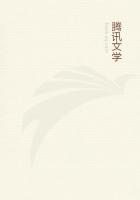We assert likewise that, besides these express oracles and immediate revelations, there are Scriptures which to the soul and conscience of every Christian man bear irresistible evidence of the Divine Spirit assisting and actuating the authors; and that both these and the former are such as to render it morally impossible that any passage of the small inconsiderable portion, not included in one or other of these, can supply either ground or occasion of any error in faith, practice, or affection, except to those who wickedly and wilfully seek a pretext for their unbelief. And if in that small portion of the Bible which stands in no necessary connection with the known and especial ends and purposes of the Scriptures, there should be a few apparent errors resulting from the state of knowledge then existing--errors which the best and holiest men might entertain uninjured, and which without a miracle those men must have entertained; if I find no such miraculous prevention asserted, and see no reason for supposing it--may I not, to ease the scruples of a perplexed inquirer, venture to say to him; "Be it so. What then? The absolute infallibility even of the inspired writers in matters altogether incidental and foreign to the objects and purposes of their inspiration is no part of my creed: and even if a professed divine should follow the doctrine of the Jewish Church so far as not to attribute to the Hagiographa, in every word and sentence, the same height and fulness of inspiration as to the Law and the Prophets, I feel no warrant to brand him as a heretic for an opinion, the admission of which disarms the infidel without endangering a single article of the Catholic Faith."--If to an unlearned but earnest and thoughtful neighbour I give the advice;--"Use the Old Testament to express the affections excited, and to confirm the faith and morals taught you, in the New, and leave all the rest to the students and professors of theology and Church history! You profess only to be a Christian:"--am I misleading my brother in Christ?
This I believe by my own dear experience--that the more tranquilly an inquirer takes up the Bible as he would any other body of ancient writings, the livelier and steadier will be his impressions of its superiority to all other books, till at length all other books and all other knowledge will be valuable in his eyes in proportion as they help him to a better understanding of his Bible. Difficulty after difficulty has been overcome from the time that I began to study the Scriptures with free and unboding spirit, under the conviction that my faith in the Incarnate Word and His Gospel was secure, whatever the result might be;--the difficulties that still remain being so few and insignificant in my own estimation, that I have less personal interest in the question than many of those who will most dogmatically condemn me for presuming to make a question of it.
So much for scholars--for men of like education and pursuits as myself. With respect to Christians generally, I object to the consequence drawn from the doctrine rather than to the doctrine itself;--a consequence not only deducible from the premises, but actually and imperiously deduced; according to which every man that can but read is to sit down to the consecutive and connected perusal of the Bible under the expectation and assurance that the whole is within his comprehension, and that, unaided by note or comment, catechi** or liturgical preparation, he is to find out for himself what he is bound to believe and practise, and that whatever he conscientiously understands by what he reads is to be HIS religion.
For he has found it in his Bible, and the Bible is the Religion of Protestants!
Would I then withhold the Bible from the cottager and the artisan?--Heaven forfend! The fairest flower that ever clomb up a cottage window is not so fair a sight to my eyes as the Bible gleaming through the lower panes. Let it but be read as by such men it used to be read; when they came to it as to a ground covered with manna, even the bread which the Lord had given for his people to eat; where he that gathered much had nothing over, and he that gathered little had no lack. They gathered every man according to his eating. They came to it as to a treasure-house of Scriptures; each visitant taking what was precious and leaving as precious for others;--Yea, more, says our worthy old Church-historian, Fuller, where "the same man at several times may in his apprehension prefer several Scriptures as best, formerly most affected with one place, for the present more delighted with another, and afterwards, conceiving comfort therein not so clear, choose other places as more pregnant and pertinent to his purpose. Thus God orders it, that divers men (and perhaps the same man at divers times), make use of all His gifts, gleaning and gathering comfort as it is scattered through the whole field of the Scripture." Farewell.
LETTER VII.














